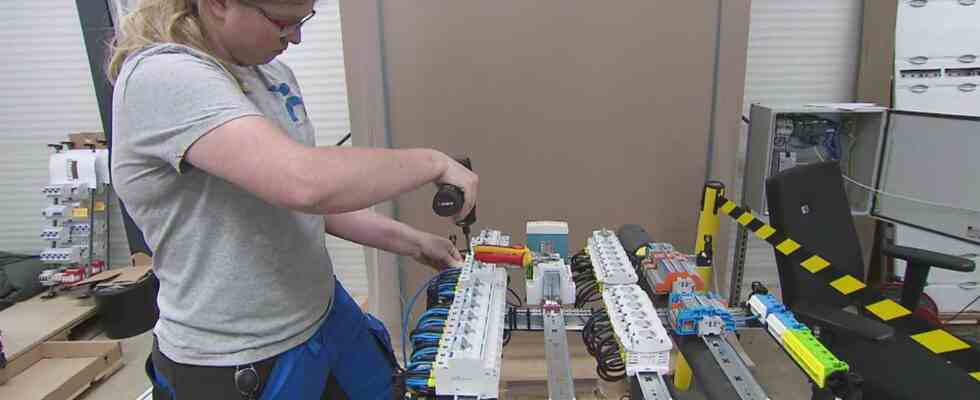Status: 01/23/2023 10:48 a.m
Customers must expect to pay higher prices for trade services in the future. Higher energy costs, higher wages and a shortage of skilled workers will make themselves felt.
Customers of craftsmen have to be prepared for higher prices. In addition to higher wages and increased energy costs, the lack of skilled workers could also have an impact, said the new crafts president Jörg Dittrich of the dpa news agency. The shortage of skilled workers will reach a critical level in the coming years when the baby boomers retire.
“There is a risk that certain services can then no longer be offered in the trades. We absolutely have to prevent this situation from occurring through a joint effort by politicians and tradesmen,” said Dittrich.
Great price pressure – appeal to politicians
Dittrich recently became President of the Central Association of German Crafts. “The craftsmanship is under great price pressure,” he said. Wages, energy prices and social security contributions have risen. The increased material prices also contribute to a large increase in costs. “I’m concerned that the craftsmanship will become unaffordable for customers. That shouldn’t be.”
Dittrich also emphasizes that the workload must be relieved because the difference between net earnings and the hourly rate including VAT is increasing. According to the president of the association, crafts are wage- and personnel-intensive. That is why he expects the federal government to relieve the work factor and fundamentally reform the social security systems and their financing in a way that is future-proof and generation-fair, said Dittrich.
The competitiveness of wage-intensive companies depends on the additional wage costs not getting out of hand. He therefore considers the concern that undeclared work will increase due to rising prices to be justified.
The shortage of skilled workers must be solved
The trade recently reported that many companies are desperately looking for trainees. Securing skilled workers is the top priority for German trade, said Dittrich. It supersedes all other topics because it ultimately depends on whether the major transformation issues, such as climate protection, can be tackled at all: “We need extremely good people who come out of school with good basic knowledge and skills, and who then can develop.” The trades are more demanding, the products and services have become significantly more complex. But that doesn’t mean that everyone who works in the trades has to have a high school diploma.
Dittrich continued: “The number of school leavers is declining, and this increases not only in the trades, but in all areas of the economy, the pressure to give opportunities to those who previously had less of an opportunity.” Wherever possible, people with no or bad school qualifications should be brought into an apprenticeship. More women must be brought into employment and more long-term unemployed must be empowered to regain a foothold in the labor market.
Immigration as a solution component
Immigration from abroad will be an important building block for solving the problem of skilled workers, Dittrich continued. But from his point of view, innovative strength is more important. “If there are too few people, why don’t we use the innovative strength that lies in the trade itself and make even more use of the technical possibilities? For example, we are currently developing a roof robot in cooperation with a university.”
However, Dittrich conceded: “Certainly, the substitution possibilities through technology are fewer in the skilled trades than in many other sectors of the economy.” That’s a good thing, because in many places even the best technology will not be able to replace individual craftsmanship. “But we can make work physically easier through greater use of technology, such as carrying tiles to the fifth floor of an apartment building.”

